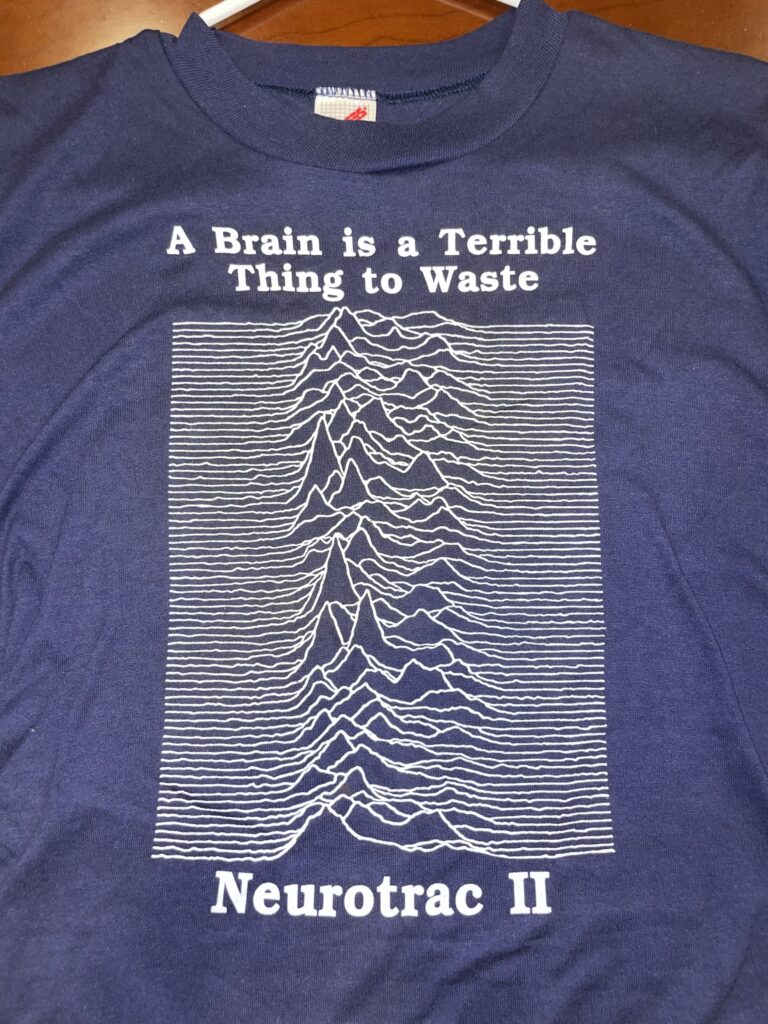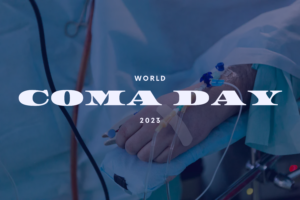Recollecting The Neurotrac II
Pre-text: Recalling The Neurotrac
In 1990, I spun off a company from Interspec to continue development of neuromonitoring devices. The Neurotrac II, released in 1994, was an updated version of the Neurotrac and was also used in intraoperative monitoring. Early in the development, I was approached by Hewlett-Packard who wanted to get into the brain monitoring market. The Neurotrac II used parts of HP’s vital signs monitor, which further established the device as the first true “EEG monitor” that could be used easily by anesthesiologists, intensivists, and nurses.
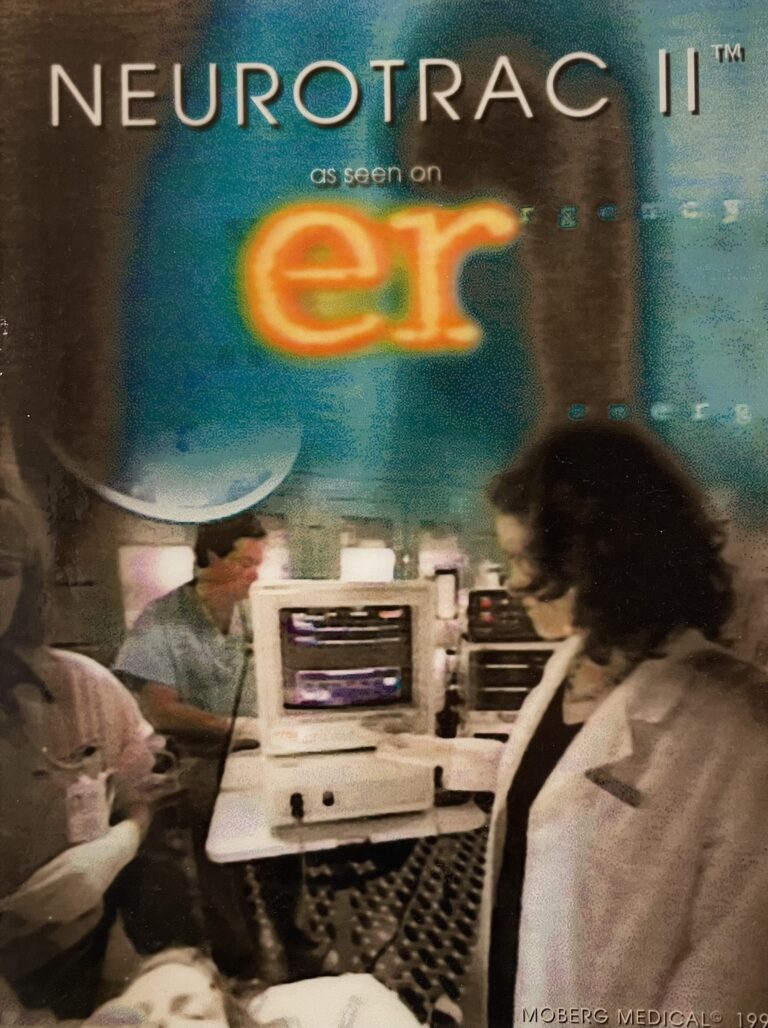
The Neurotrac II was patented in 1982, and was pioneering in many ways.
(A) With the addition of an interface to a transcranial Doppler (TCD) ultrasound machine, it started the field of multimodal monitoring of brain function by combining EEG, evoked potentials, and TCD.
(B) The Neurotrac II was likely the first computerized continuous EEG monitor to be used in critical care. This use was pioneered by Dr. Tom Bleck at the University of Virginia.
(C) The Compressed Spectral Array (CSA) display was used to visualize seizures:
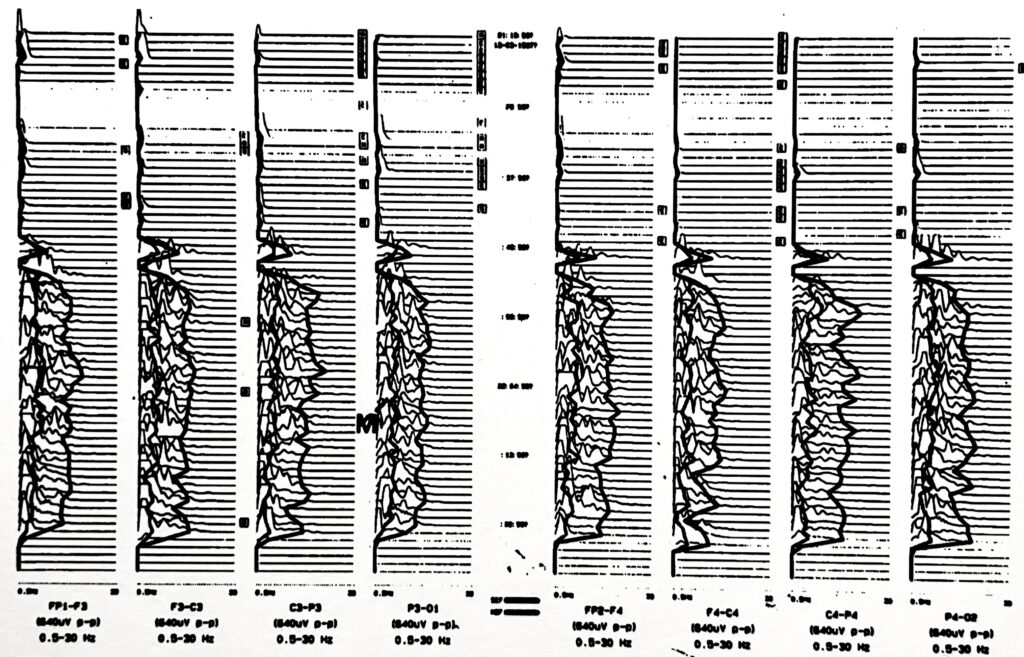
CSA: Compressed Spectral Array
(D) The Spectral Edge Frequency (SEF) was used to track the seizures over time:
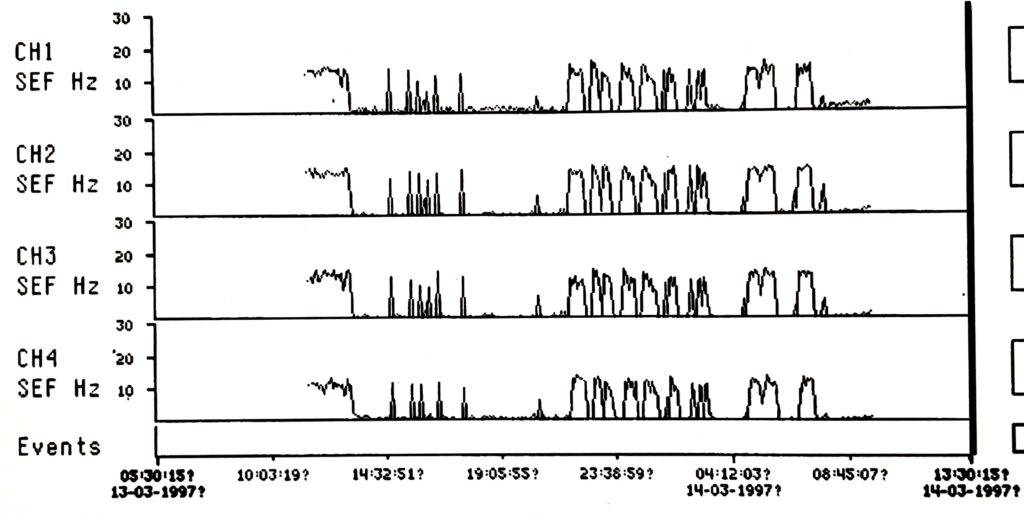
SEF: Spectral Edge Frequency
(E) The Neurotrac II was also the first machine to perform EEG and evoked potentials simultaneously.
We designed the first touch-proof EEG electrode connectors for safety reasons to mimic what was already accepted in critical care, but not in EEG. Over the ensuing years, the entire industry switched to this design.
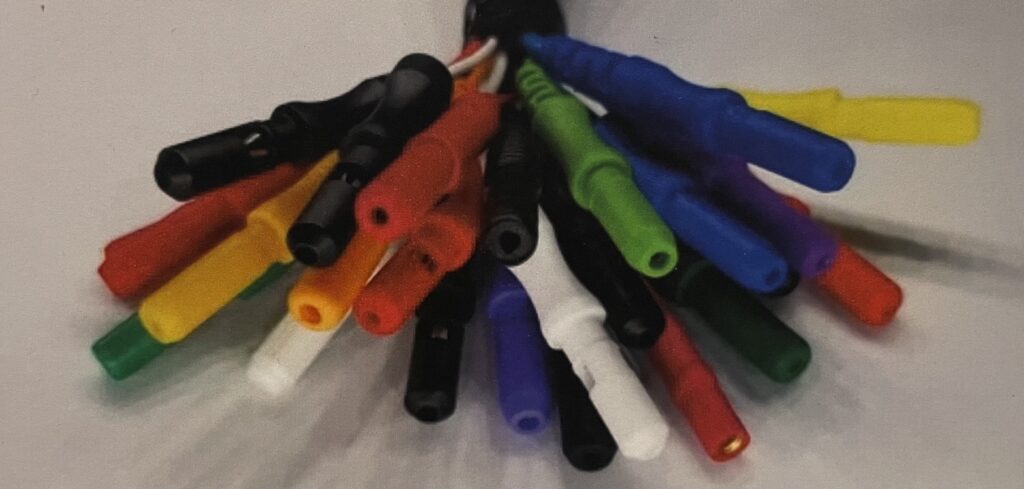
Touch-proof EEG electrode connectors
We also designed “Personality Cards” that, when plugged into the machine, configure the EEG defaults. Each card functioned as an EEG headbox for electrode connections that was specific to the type of case.
Below is the Neurotrac II machine that resides at the Moberg Analytics Intergalactic Headquarters:
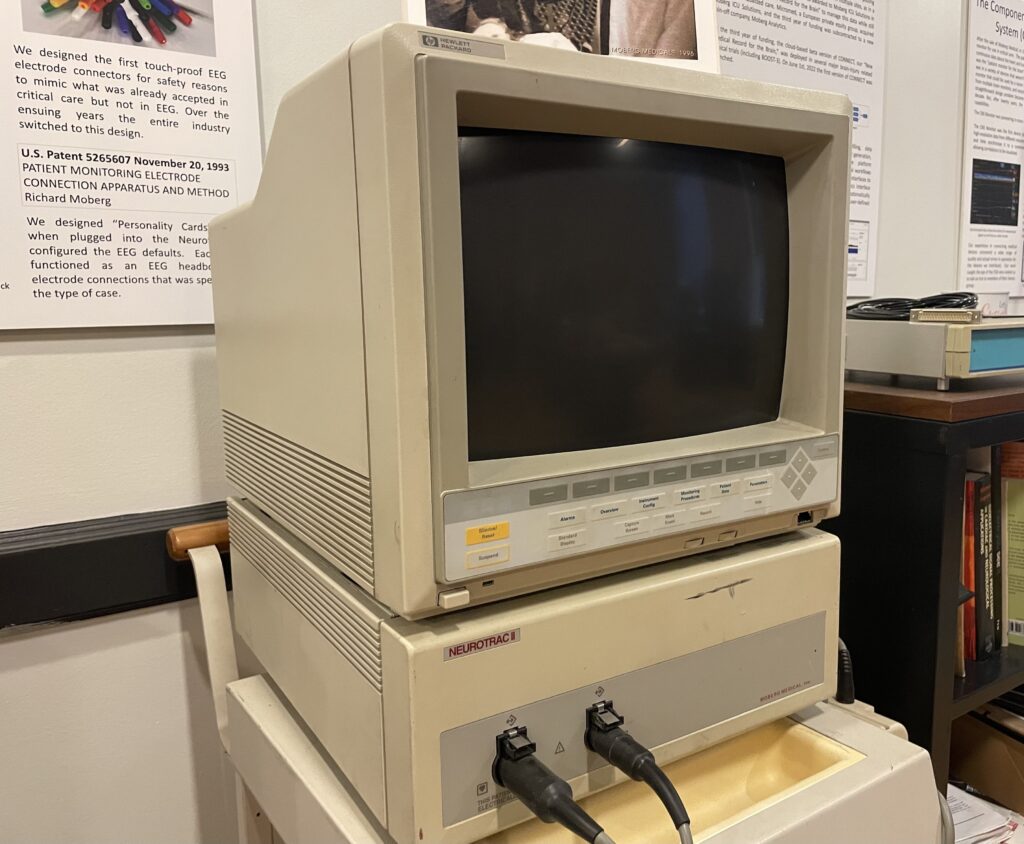
Plus, check out the t-shirts that were made to advertise the product!
